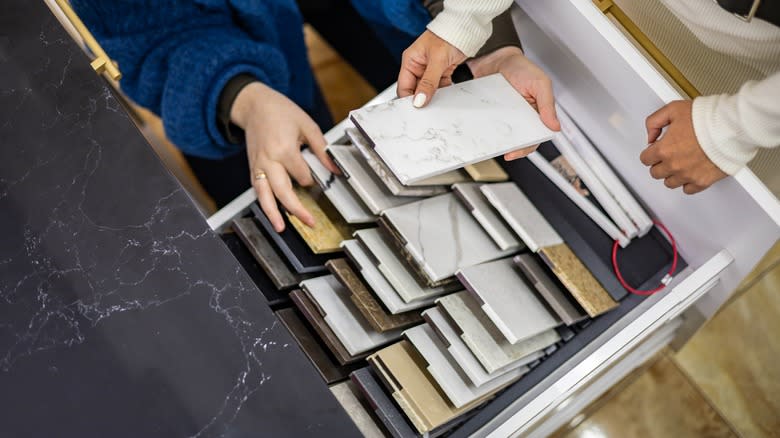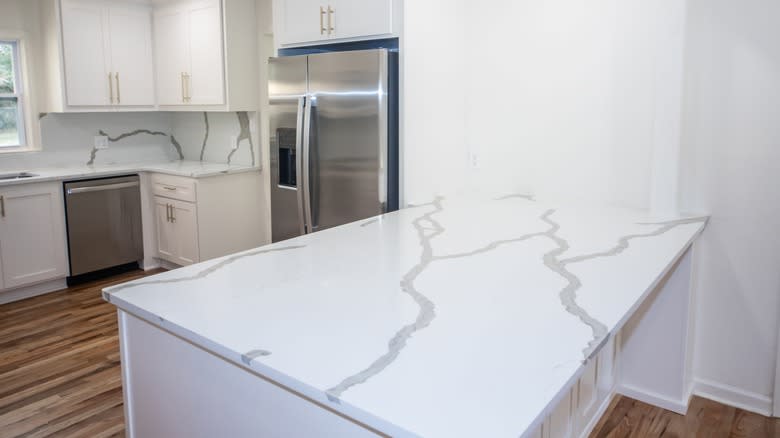The Best Type Of Stone To Choose For Your Kitchen Countertop, According To A Pro

While laminate countertops are great for those renovating or building a kitchen on a budget, there's nothing like the sleek, elegant look of stone countertops. Stone countertops come in several attractive choices which can make it tough to know which one is best. You could put in granite countertops, for instance, or go with marble, quartz, slate, soapstone, each with its own pros and cons. All those options make choosing the right one tricky.
Irakli Khizanishvili, CEO and owner of Proslit Tile & Stone, spoke with Daily Meal and provided some exclusive insights into which of these stones might be the best choice: "I highly recommend quartz countertops for kitchens." He goes on to explain that because of the stone's properties, it's more stain-resistant. Those same properties can also make it a better choice for cleanliness and avoiding foodborne illness. Plus, he notes, "It is also very durable, requiring less maintenance than other natural stones."
Read more: The Best Kitchen Gadgets You Can Buy
Why Quartz Is Such A Great Pick For Your Kitchen

There are a couple of different reasons why you might want to choose quartz countertops in your kitchen, but one key benefit that stone expert Irakli Khizanishvili notes is the stone isn't as permeable as other types. "Quartz is non-porous, making it resistant to stains and bacteria," he explains. Some types of stone, such as marble, are porous, which means that dirt, liquid, and bacteria can seep in. If you don't clean your marble or other stone countertop quickly enough, you can wind up with these types of issues. Besides using quartz, a sealant can also help to keep your countertops free from harmful bacteria or stains.
Another reason to choose quartz has to do with its hardness. Quartz is harder than marble and granite, which means it may be less likely to get etches, nicks, and scratches. Just note that it is sensitive to heat, so while it may not be as prone to etching, it could get heat damage if you don't use pads under hot cookware.
Read the original article on The Daily Meal.


